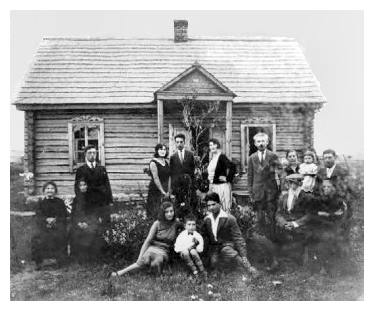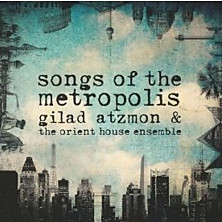Jazzwise - DESERTED CITIES OF THE HEART by ANDY ROBSON
 Friday, January 25, 2013 at 6:40PM
Friday, January 25, 2013 at 6:40PM  Gilad Atzmon
Gilad Atzmon
GILAD ATZMON has been a restless presence on the British and international jazz scenes since the early 1990s, with his garrulous playing style that’s as coruscating and as caustic as his provocative political views. Yet his latest work, Songs Of The Metropolis, finds him mellowing, but only a little, says ANDY ROBSON
Jazzwise Feb 2013 Edition
They call him the hardest working man in jazz. And Gilad Atzmon has no problem justifying that title. “I’m always busy! As you know, I don’t fill out the forms for the Arts Council. I don’t believe it’s down to the tax payers to pay for me loving music. So for me the only way to survive is to keep working.”
And the fruits of that labour keep coming: we’re here to talk about his new release as leader of The Orient House Ensemble, Songs Of The Metropolis. But straight from here Atzmon’s off for a Blockheads gig; he’s every intention of finishing the production of Blockheads bass hero Norman Watt-Roy’s album in the new year, he’s producing long time associate Sarah Gillespie’s new album and, perhaps most exciting of all, there’s “the most expensive album I’ve ever done. Recorded at Abbey Road, a beautiful project, a double album – four sides of vinyl – it’s a tribute to Serge Gainsbourg!”
The energy, the will to succeed, (and not to mention the eclecticism) seems endless. One stereotype, of course, is that Atzmon’s drive reflects the classic immigrant’s need to work twice as hard, to be twice as good as their host, to build their new life in a new land. After all it’s 16 years since Atzmon left Palestine for Cricklewood’s green and pleasant land. But Atzmon doesn’t do stereotypes. If he identifies with any community, it is not one defined by such limited notions as nationhood or ethnicity. Instead his home is among the community of jazz people striving to find new voices, new ways of expression. And for Atzmon these musicians are free of the trammels of time and place: whether it’s Coltrane in New York, Piazzolla in Buenos Aires or Bird all over the place.
Yet Atzmon’s albums resonate with a sense of time and place: only Atzmon can take us from ‘London To Gaza’ and indeed ‘All The Way To Montenegro’ (The Tide Has Changed); only Atzmon has shepherded us from ‘The Land of Canaan’ (Exile) to ‘Autumn In Baghdad’ and, by delicious irony, ‘Spring In New York’ (Refuge). And now, with Songs Of The Metropolis, Atzmon takes us further into the paradoxical locus of his musical heart. On one level Songs Of The Metropolis is a concept album, a travelogue of places rich with meaning for Atzmon (and indeed the band, for this is very much a band release). The notion is hardly unique. It’s only a couple of years since the ebullient Hiromi guided us through Place To Be, which celebrated puff pastry in France and crisps in Cape Cod. But travel was always going to be more complex and confectionery-free for Atzmon. Indeed, although Atzmon describes his pieces as ‘love songs’, love for him is as much about loss as it is about consumption and consummation.
“I travel a lot. Every night I fall asleep in a different town. And I fall in love every night. Every town carries a significant colour. It is the sound of language, it is the way the women behave: most towns have their own sounds, their own song.”
And some of the signposts to a city’s signature song are familiar. Atzmon’s ‘Paris’ is redolent with Bechet, accordion chords underwrite its melancholic joie de vivre, Harrison’s piano is broken-hearted yet lyrical.
But as Atzmon is quick to point out, if he has a talent as a composer as well as a philosopher, it is to ‘deconstruct’. He takes the familiar, but places in it a fresh context, breaks a tune mid-bar, shifts a tempo with the merest cue. So ‘Vienna’, hardly surprisingly, is a waltz (and Harrison, the nearest we have to Bill Evans, evokes a ‘Waltz For Debby’). Yet for all its charm, this ‘Vienna’, this paradise of sweet things, could almost be too sickly, scarred as it is with the scrape of Stavi’s bass.
Nowhere is this deconstruction more spectacular than on ‘Scarborough’, at over 10 minutes the epic heart of Songs Of The Metropolis. The saxman loves Scarborough the town, but the incongruence of positioning the sleepy seaside site alongside iconic metropolises like Moscow and Tel Aviv tickles Atzmon’s broad humour. And only he could propel the familiar folkish theme of ‘Scarborough Fair’ to a furious Coltrane-style climax, replete with quotes from ‘My Favorite Things’.
Atzmon’s re-visionings of Bird songs on In Loving Memory Of America prepared us for these deconstructions, these invitations to a dance during which we can never be too sure who is leading, who is calling the tune. And with this awareness comes a realisation that these cities are as imaginary as they are geographically specific. They are, as Cream’s lyricist Pete Brown may have had it, ‘Deserted Cities Of The Heart’.
“Yes, the music is about love, but love of something that is lost. It is about loss, about yearning… yes I am always nostalgic – you remember Nostalgico? (Atzmon’s 2009 release where he reinvented the familiar, like ‘In A Sentimental Mood’, as something new and contemporary). Look at how people yearn for Elvis. You like Elvis, but it’s not because you were with Elvis – it’s because you would’ve liked to be like that. I wasn’t in Paris when it sounded like that, but I wanted to create a sound like I dreamed it would be!” Yet one metropolis is conspicuously absent from this roll call of the world’s most vivid cities. London. Or more specifically, Atzmon’s long time UK residence, Cricklewood. He laughs: “I thought of doing a posh arrangement of ‘New York, New York’, you know, ‘On Cricklewood Broadway’. But maybe only you and me would’ve got the joke.”
Few have tried to celebrate Cricklewood, fewer have succeeded. Alan Coren, perhaps. Ten Years After’s Cricklewood Green spawned the Woodstock monster ‘Love Like A Man’. Doubtless this feature will provoke a rich correspondence about North West London’s finest. Indeed, as a Blockhead, Atzmon is all too aware of Kilburn and its High Road’s heritage. But more pertinently, Atzmon rages against London’s lack of a theme tune, musical or indeed cultural.










